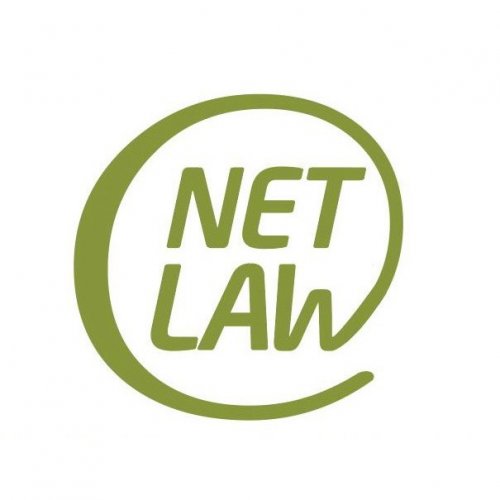Best Data Center & Digital Infrastructure Lawyers in Vietnam
Share your needs with us, get contacted by law firms.
Free. Takes 2 min.
Or refine your search by selecting a city:
List of the best lawyers in Vietnam
About Data Center & Digital Infrastructure Law in Vietnam
Data centers and digital infrastructure form the backbone of Vietnam's rapidly growing digital economy. These facilities store, manage, and process critical data that drives everything from financial transactions to social networking. Vietnam has experienced an upsurge in demand for local data centers, largely fueled by increased foreign direct investment, growing cloud adoption, and evolving regulatory requirements for data localization and cybersecurity. Legal frameworks governing data centers and digital infrastructure are developing quickly to ensure data security, promote technological advancement, and encourage foreign and domestic investment in digital services.
Why You May Need a Lawyer
Engaging a lawyer with expertise in data center and digital infrastructure law is essential for several reasons. Setting up, operating, or investing in data centers in Vietnam involves navigating numerous legal challenges, such as complying with data localization mandates, securing construction permits, and fulfilling cybersecurity requirements. Common situations that may require legal help include understanding regulatory compliance for cross-border data transfer, negotiating service-level agreements, ensuring intellectual property protection, resolving disputes with contractors or service providers, and managing risks related to breach incidents. Additionally, foreign investors often need guidance on foreign ownership limits, joint venture agreements, and tax incentives for digital infrastructure projects.
Local Laws Overview
Vietnam's legal landscape for data centers and digital infrastructure is shaped by a combination of laws and regulations. Key documents include the Law on Cybersecurity 2018, the Law on Information Technology 2006, and the Law on Telecommunications 2022, as well as relevant decrees and circulars. Some of the most relevant legal aspects include:
- Data Localization: The Law on Cybersecurity requires certain types of data, especially personal and important data of Vietnamese users, to be stored and processed in Vietnam.
- Licensing and Permits: Operating data centers requires approvals from the Ministry of Information and Communications, as well as compliance with construction, environmental, and fire safety regulations.
- Cybersecurity Obligations: Data center operators must implement technical measures for data protection, incident response, and reporting breaches to authorities.
- Cross-Border Data Transfer: Transfers of data outside of Vietnam are subject to significant restrictions and compliance requirements.
- Foreign Investment Regulations: Foreign entities may face ownership limits and mandatory joint venture requirements depending on the type and scope of digital infrastructure activities.
- Tax and Incentives: Preferred tax policies may apply to large-scale or strategically significant projects in the digital infrastructure space.
Frequently Asked Questions
What is a data localization requirement in Vietnam?
Vietnam requires certain types of data, such as personal information of Vietnamese citizens, to be stored and processed on servers physically located in Vietnam. This aims to enhance information security and facilitate governmental supervision.
Do I need a license to operate a data center in Vietnam?
Yes, operating a data center typically requires specific permits from the Ministry of Information and Communications, as well as compliance with local construction, environmental, and safety regulations.
What are the main cybersecurity obligations for data center operators?
Operators must implement technical and managerial measures to protect data, regularly assess system vulnerabilities, and report cybersecurity incidents to relevant authorities in a timely manner.
Can data from Vietnam be transferred overseas?
Cross-border data transfers are regulated and restricted. Transfers require compliance with cybersecurity laws and sometimes need approval from relevant authorities, especially if the data involves personal or critical information.
Are foreign companies allowed to own data centers in Vietnam?
Foreign companies can invest in data centers, but there may be restrictions or requirements such as forming joint ventures with Vietnamese partners, depending on the nature and size of the project.
What intellectual property issues should I be aware of?
Data center operators must ensure legal use of software, protect proprietary technologies, and respect the intellectual property rights of third parties, both in Vietnam and internationally.
What should be included in a data center service agreement?
Key terms include service levels, uptime guarantees, data protection responsibilities, liability clauses, termination rights, and compliance with local legal requirements.
What are the penalties for non-compliance with data center regulations?
Penalties can include administrative fines, revocation of operational licenses, criminal prosecution in severe cases, and civil liability for damages caused by breaches.
How is personal data defined under Vietnamese law?
Personal data refers to information associated with identifying an individual, such as names, identification numbers, contact details, and other data that can directly or indirectly identify a person.
How can I get tax incentives for a data center project?
Certain data center and digital infrastructure projects, especially those involving cutting-edge technology or large capital investment, may be eligible for tax incentives. Procedures involve application to relevant ministries and satisfaction of statutory requirements.
Additional Resources
Useful organizations and government bodies include:
- Ministry of Information and Communications (MIC) - Responsible for licensing and regulatory oversight of data centers.
- Vietnam Internet Association (VIA) - Provides industry insights and advocacy for digital infrastructure stakeholders.
- Vietnam National Cybersecurity Center (NCSC) - Oversees cybersecurity enforcement and guidance.
- Vietnam Chamber of Commerce and Industry (VCCI) - Offers resources for foreign and local investors in the digital sector.
- Ministry of Planning and Investment (MPI) - Manages investment procedures, including for foreign investors in digital infrastructure.
Next Steps
If you need legal assistance regarding data center or digital infrastructure matters in Vietnam, consider the following steps:
- Identify the specific legal issues you face, such as licensing, compliance, dispute resolution, or investment structuring.
- Consult with a lawyer or law firm specializing in technology, telecommunications, and data privacy law in Vietnam.
- Gather all relevant documentation, including contracts, business plans, and correspondence with regulators.
- Engage in preliminary discussions to assess risks, timelines, and strategic options tailored to your needs.
- Work closely with your legal counsel to ensure compliance with all applicable local laws and to implement best practices for risk management and operational continuity.
- Stay updated with regulatory developments, as Vietnam's digital economy laws continue to evolve rapidly.
Lawzana helps you find the best lawyers and law firms in Vietnam through a curated and pre-screened list of qualified legal professionals. Our platform offers rankings and detailed profiles of attorneys and law firms, allowing you to compare based on practice areas, including Data Center & Digital Infrastructure, experience, and client feedback.
Each profile includes a description of the firm's areas of practice, client reviews, team members and partners, year of establishment, spoken languages, office locations, contact information, social media presence, and any published articles or resources. Most firms on our platform speak English and are experienced in both local and international legal matters.
Get a quote from top-rated law firms in Vietnam — quickly, securely, and without unnecessary hassle.
Disclaimer:
The information provided on this page is for general informational purposes only and does not constitute legal advice. While we strive to ensure the accuracy and relevance of the content, legal information may change over time, and interpretations of the law can vary. You should always consult with a qualified legal professional for advice specific to your situation.
We disclaim all liability for actions taken or not taken based on the content of this page. If you believe any information is incorrect or outdated, please contact us, and we will review and update it where appropriate.
Browse data center & digital infrastructure law firms by city in Vietnam
Refine your search by selecting a city.















